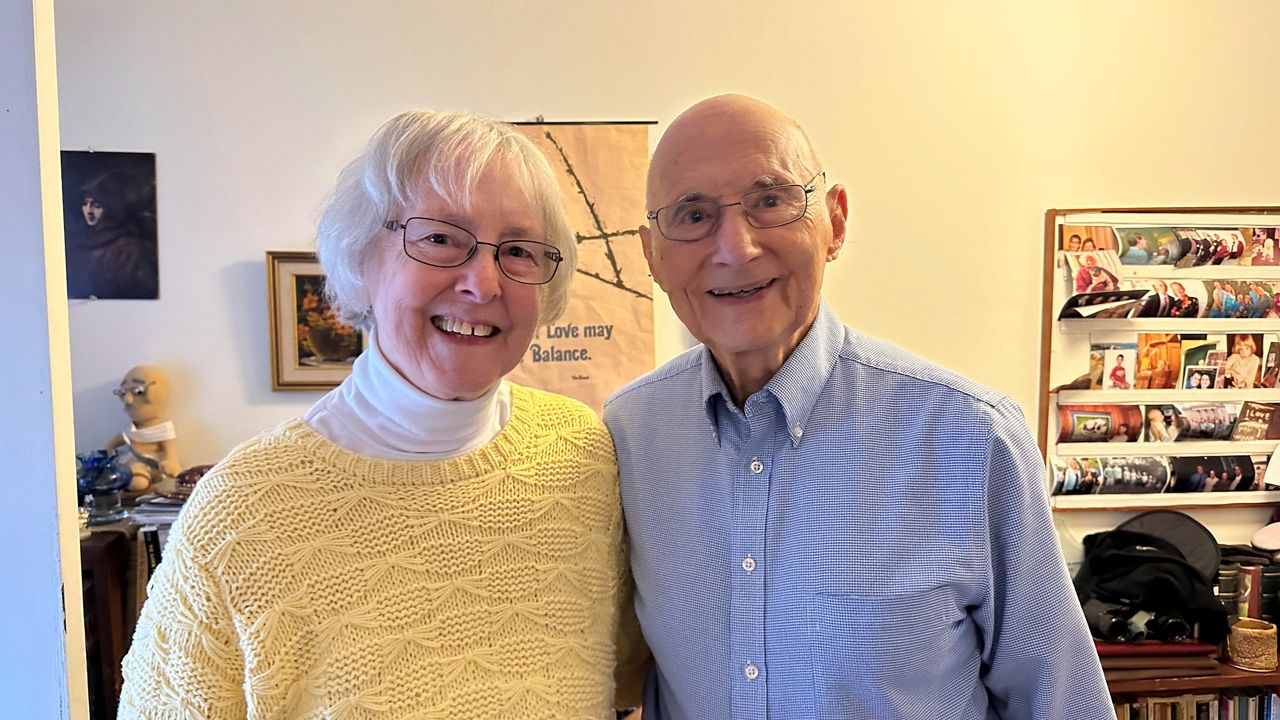BOWLING GREEN, Ky. — Saturday, Jan. 27 is National Holocaust Remembrance Day, a time to recognize the deaths of over six million Jews at the hands of Nazi soldiers.
A recent Washington Post article estimated there are 245,000 Holocaust survivors still living.
John Rosenberg lives a peaceful life in the heart of Prestonsburg.
But growing up Jewish in Magdeburg, Germany, his life was anything but peaceful. Rosenberg was born in 1931, two years before Adolf Hitler took power. Once he did, everything changed.
Eventually, on Nov. 9, 1938, German soldiers ransacked and destroyed the Rosenbergs’ apartment, synagogue, along with countless other homes, businesses and places of worship in a night known as Kristallnacht.
Rosenberg recounted, “The Nazis came and ordered us to go out into the courtyard. We stood there in the courtyard at night. They went into the synagogue and we heard these loud explosions, and they blew it up the inside of it. While we were standing there, my mother, who held my brother in her arms, looked at this Nazi goon, who had his rifle in his hand, and my mom asked, ‘Are you gonna kill us?’ And he said, he didn’t know.”
Seven-year-old Rosenberg had to sleep on a bare mattress in a destroyed kitchen that night. And the next morning, they heard a knock at their door.
Rosenberg said, “The Gestapo showed up to arrest my father and take him away.”
His father originally went to the local jail, but eventually was sent to the Buchenwald Concentration Camp, where he was tortured.
Rosenberg said, “They spent most of their days just standing. I can’t stand around for an hour, much less all day.
During that time, young Rosenberg was sent off to Frankfurt to live with his aunt, however, his father and uncle, miraculously, were released days later, and were given 30 days to get out of the country.
“They had been released, their heads have been shaven and their was hope for the next step..” Rosenberg remembered.
Hope had arrived. The family went to Amsterdam, where they stayed at a Jewish refugee camp for a year. While there, Rosenberg’s father was offered a job in Westerbork, but with European tensions and antisemitism rising, the elder Rosenberg knew it would be detrimental if they stayed.
Rosenberg said, “My dad had a premonition. He said, ‘If I go to Westerbork, we’re done for."‘“
The family boarded a ship in Feb. 1940, just four months before the Nazis invaded the Netherlands. Landing in the U.S., Rosenberg excelled. He graduated from Duke and enrolled in the Air Force. He eventually pursued a law degree focusing on civil rights after seeing his colleagues experience racism while boarding a train in D.C.

“When we got to Washington D.C., Abe said ‘I’ll see you back in England.’ I said ‘Where [are] you going?’ And he said, ‘I’m going back to the trains where the Blacks sit.’ I had, in some ways, more than one thought, ‘Maybe somewhere along the way I can help change that system.’”
Fighting civil cases about similar oppressive issues he went through from 1962 to 1970; eventually moving to Kentucky to work with Appalachian Research Defense Fund, an organization that combats poverty issues with Appalachia.
Rosenberg said, “I said, ‘Well, we’ll stay a couple of years,’ that was 50 years ago.”
Now a staple to this side of the commonwealth. The community came together to paint a mural for Rosenberg and his wife Jean. He’s earned rewards for his dedication to helping the lives of others. All of this while also continuing to pursue his passion for activism of social values at 92.



